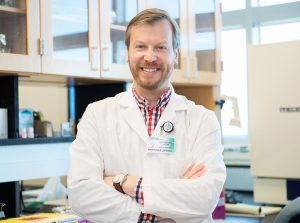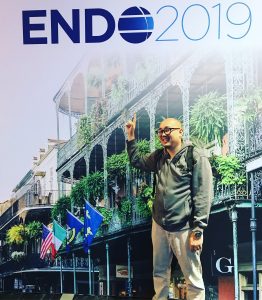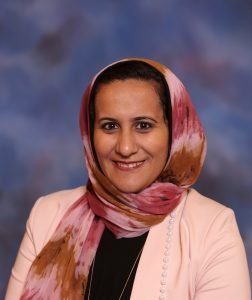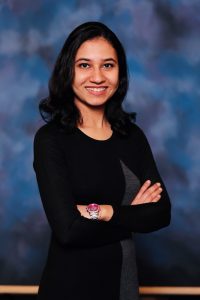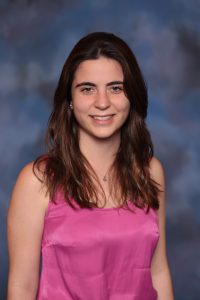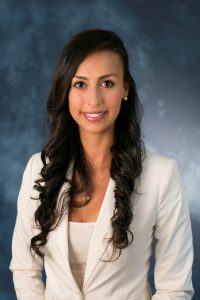Endocrine News chats with a group of early-career members whose trip to New Orleans had quite an impact on them, most of whom were at their very first ENDO. Find out what their takeaways were from ENDO 2019 and why they would recommend it to colleagues.
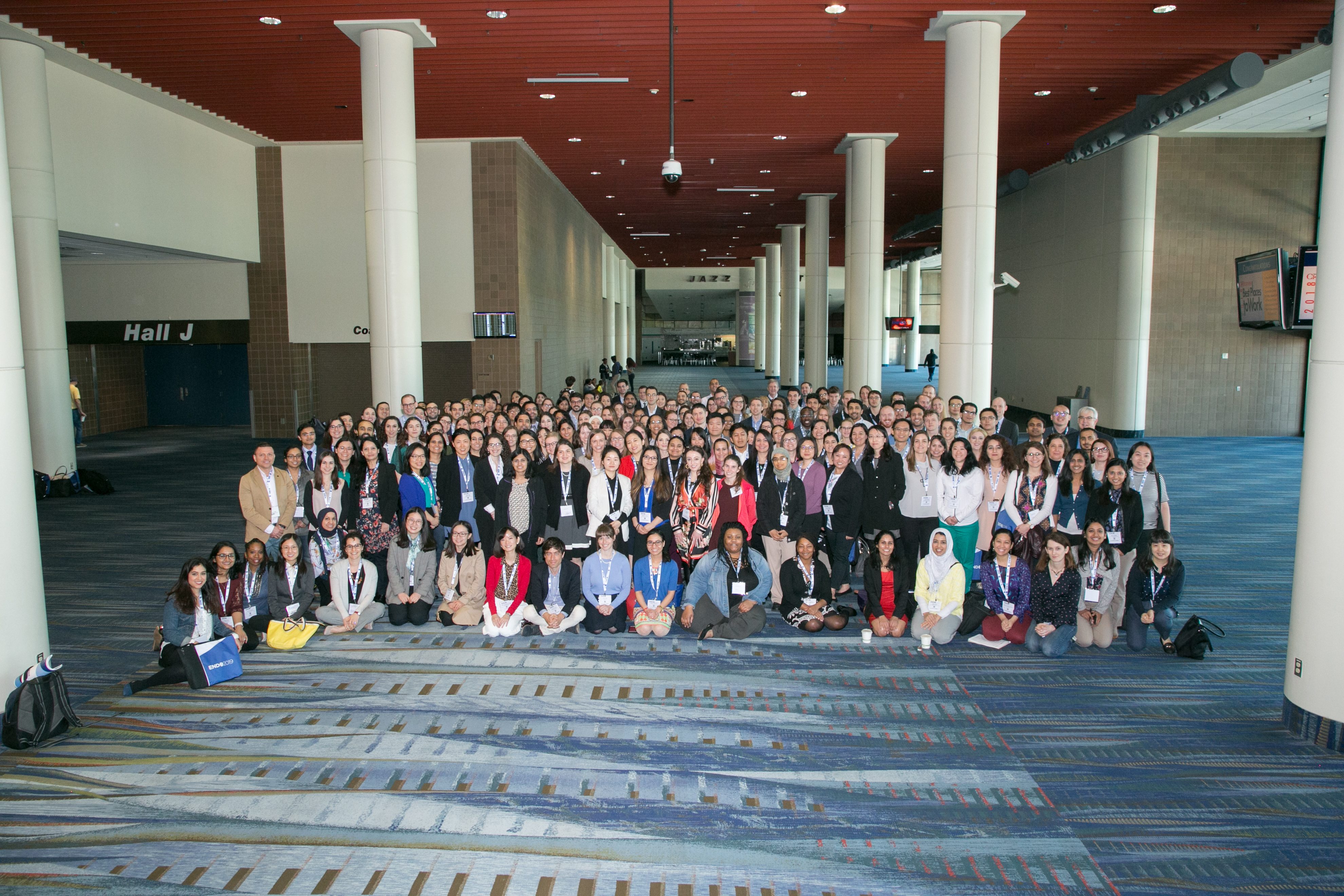
For so many attendees in New Orleans, ENDO 2019 was their fourth ENDO. Or their seventh. Or even their thirtieth. It can be easy to forget that once upon a time you attended your very first ENDO. Do you remember how excited you were? Or how overwhelmed?
While it’s easy for veterans to look back and the lessons learned, the trips taken, and friendships that blossomed at past conferences, each year there are a significant number of young professionals who are coming to see what ENDO has to offer for them so early in their endocrine careers. For many endocrinologists, a successful ENDO experience can be a deciding factor on the course their career takes simply based on networking opportunities, ideas gained, or information learned.
Not surprisingly, most early-career attendees were a part of the Early Career Forum that took place on Friday March 22, and that’s where we caught up with them to get their thoughts about ENDO, what influenced them the most, and what they learned while they were in New Orleans.
Answering our questions are Ghada Elshimy, MD, PGY4 fellow, Endocrinology Department, University of Arizona College of Medicine, Tucson; Kristopher A. Lofgren, PhD, research scientist, Gunderson Medical Foundation, Oncology Research Laboratory, La Crosse, Wisc.; Wayne Hann Kang, MD, University Tunku Abdul Rahman, Malaysia; Komal Motwani, MD, Eastern Virginia Medical School, Norfolk; medical student Letícia Assad, University of Brasília – UnB, Brazil; and Maria Gabriela Suarez, fellow, Oregon Health Sciences University, Portland.
“Even though there is a considerable amount of clinically focused material, basic scientists should use this as an opportunity to learn from clinicians. If you are concerned about your research not ‘fitting in’, use ENDO as an opportunity to get a fresh set of eyes and feedback on your work, as well as broadening your own thought process.” – Kristopher A. Lofgren, PhD, research scientist, Gunderson Medical Foundation, Oncology Research Laboratory, La Crosse, Wisc.
Endocrine News: What made you decide to come to ENDO 2019?
Ghada Elshimy: ENDO 2019 is one of the most important events for endocrinology fellows. It is a great learning experience and the best place for networking. I actually attended a prior ENDO when I was an internal medicine resident preparing for my fellowship and the experience was delightful, so I wanted to attend the conference after being a fellow as I enjoyed my prior ENDO meetings.
Wayne Hann Kang: My supervisors who had attended previous ENDO meetings gave a very positive feedback and strongly encouraged me to attend. Furthermore, I have logged on to the free session recordings of the previous ENDO meetings and found them to be very beneficial to my practice and training. Hence, after having been awarded the early career travel grant, I could not find any reason to decline this opportunity.
Kristofer Lofgren: I presented a poster at the Great Lakes Nuclear Receptor conference at the end of 2018 and was the gracious recipient of a travel award to use toward ENDO 2019 attendance. It was also the first time I have had research to present that would be a good fit at an ENDO meeting.
Komal Motwani: The quality of the educational sessions and the scale of ENDO as heard by colleagues and attendings made it a must-visit.
Leticia Assad: I first considered attending ENDO 2019 when my mentor encouraged me to submit my work as a poster. He described ENDO as the largest and most important meeting in the endocrinology field; anyone who considered pursuing endocrinology as a specialty had to get to know ENDO. I then decided to come to ENDO 2019 when I saw all topics related to professional career development as it was an opportunity to improve my skills beyond endocrinology.
Maria Gabriela Suarez: I am currently a second-year fellow and I wanted to come to ENDO 2019 because it is the largest endocrine meeting, which means that endocrinologist from all around the world meet under one academic roof. Because of this I feel that I’m able to get the most updated information about clinical trials, diagnostic methods and advances in patient care.
“The Early Career Forum empowers young trainees and nurtures budding researchers, while the actual ENDO with its dynamic programs left me with an overwhelming sense of euphoria. There are just so many things to learn! I would say my 34-hour flight from Malaysia to New Orleans was well worth it!” – Wayne Hann Kang, MD, University Tunku Abdul Rahman, Malaysia
EN: What really surprised you about the ENDO experience?
Ghada Elshimy: ENDO has always been one of my favorite’s meetings of the year. This year, ENDO has been exceptional. Being a fellow and meeting all of these experts has been an honor. I was really surprised that the lectures were so crowded; people actually showed up 15 minutes early just to have a seat and attend these amazing lectures. Other people will stand up or sit on the ground just to listen to some of the sessions. ENDO was very well organized was and the staff was very nice. I was also surprised to know that there is lot of organizations that we can be part of and that ENDO offer a lot of help for the fellows.
Wayne Hann Kang: I would describe the ENDO meeting as empowering, nurturing, dynamic, and overwhelming! The early career forum empowers young trainees and nurtures budding researchers, while the actual ENDO with its dynamic programs left me with an overwhelming sense of euphoria. There are just so many things to learn! I would say my 34-hour flight from Malaysia to New Orleans was well worth it!
Kristofer Lofgren: I was pleasantly surprised with the attention and opportunities given to trainees (at all levels) during the meeting. The collegiality of the attendees that I interacted with was great too; I immediately felt like I had been a frequent or returning attendee.
Komal Motwani: The variety of international faculty and participants came as a pleasant surprise to me.
Leticia Assad: I was surprised by the friendly atmosphere. Every little detail of the organization was thought through so the experience for “first timers” could be wonderful.
Maria Gabriela Suarez: The ethnic, religious and generational diversity seen at the conference is a highlight that is often overlooked. One of the best parts of the conference for me is to interact with endocrinologists from around the world. I love walking down the halls and seeing people from all races, ages, and religions, from medical students to directors of large research centers. I believe that the true value of this conference is not only the diversity of the presentations, but also in the diversity of the background of the attendees and speakers.
“I will definitely encourage all of my colleagues to go to the conference because ENDO is a one-of-a-kind experience. I enjoyed every second of the meeting. If you want to improve your medical knowledge, network, and learn about endocrinology, you should never miss ENDO!” – Ghada Elshimy, MD, PGY4 fellow, Endocrinology Department, University of Arizona College of Medicine, Tucson
EN: What session or sessions really “wowed” you at ENDO 2019?
Ghada Elshimy: This year, ENDO has been amazing. I attended multiple lectures including meet the professor and I couldn’t believe the amount of information I gathered to deliver better care for my patients. Each lecture was better than the prior one. I Loved Dr William Young session about Clinical Pearls Adrenal Disease Case report and Email consults. I also have to mention Dr Lynnette K Neiman’s lecture about Approach to Pituitary and Ectopic ACTH secreting Tumors. These three lectures were my favorites.
Wayne Hann Kang: The clinical pearls sessions held at the science hub were incredible. I love the way some of the interesting cases from the posters were dissected and discussed by the experts, making the learning experience brisk and robust.
Kristofer Lofgren: It wasn’t so much a particular session, but how sessions were organized. The planning that went into the basic science pathways was incredibly helpful for me, because it is usually very difficult to attend symposia, poster sessions, etc. on a focused topic during a large meeting due to scheduling conflicts. Keeping the ‘meeting within a meeting’ in mind helped me get as much as I could out of a large meeting like ENDO.
Komal Motwani: The clarity of the presenters wowed me. Whether it was old topics such as endocrine emergencies or rare topics such as endocrine tumors in pregnancies, the message was crisp.
Leticia Assad: The session regarding the genetics of puberty was breathtaking. All the new discoveries about the mechanism of puberty regulation are really exciting. And the professors were spectacular.
Maria Gabriela Suarez: I would say that all the Meet the Professor talks are always a highlight of ENDO meetings. One of the ones that I liked the most was obesity therapeutics. It was fascinating to bring up the discussion on the weight set point and the different medications available to treat these patients. I liked that we are moving away from overlooking obesity in our everyday clinic and approaching it as the cause of many other comorbidities. We are changing our mentality of shaming our patients with obesity, to understanding the true pathophysiology behind their weight gain.
“The clarity of the presenters wowed me. Whether it was old topics such as endocrine emergencies or rare topics such as endocrine tumors in pregnancies, the message was crisp.” – Komal Motwani, MD, Eastern Virginia Medical School, Norfolk
EN: Did anything you saw or heard at ENDO 2019 have an impact on your future career aspirations?
Ghada Elshimy: This year, I was lucky to receive Early Career Forum travel award. It was a one-day meeting on Friday March 22. During that day, I had the chance to talk to multiple physicians and learn about their experiences and how they reached their goals. That helped me realize that there are a lot of opportunities available and lot of people are ready to offer help to fellows and others to get the right job/career. This has opened my eyes to the future and that dreams can be achieved.
Wayne Hann Kang: Gary Hammer’s session in the early career forum was truly inspirational. I’m amazed at how much he has accomplished, and I believe his career journey has really struck a chord to aspiring research-clinicians like me.
Kristofer Lofgren: Absolutely. I participated in the Early Career Forum to get some insights on career development as not only a scientist, but as a mentor, project coordinator, and other aspects of science that are usually developed on the job. The sessions helped me reaffirm my current career goals, but also to identify some viable alternatives in case things do change in the future.
Komal Motwani: The early career session did orient me to be more aware of my career as well as teaching options.
Leticia Assad: Yes, I came to Brazil really motivated to continue working with bone metabolism, my research topic. Getting to know specialists that are international references in their fields was also really inspiring. Nevertheless, the section at the Early Career Symposium with Gary Hammer was the most touching one. It will keep me motivated throughout the year.
Maria Gabriela Suarez: I was born in Ecuador but did my studies in the U.S., so ENDO 2019 allowed me to meet and network with other endocrinologists in South America as well as see the high-level research that was done in several countries all around the world. During this conference I was able to meet amazing endocrinologists in Colombia, Brazil, Chile, and Ecuador who could become great mentors for me in the future. Because of this, I have been able to establish a network of contacts for future collaborations.
“The session regarding the genetics of puberty was breathtaking. All the new discoveries about the mechanism of puberty regulation are really exciting. And the professors were spectacular.” – Letícia Assad Maia Sandoval, medical student, University of Brasília – UnB, Brazil
EN: Did you learn anything at ENDO 2019 that you can use daily?
Ghada Elshimy: ENDO 2019 taught me valuable things regarding adrenal, pituitary, diabetes, etc. One of the lectures was talking about depression and diabetes which is considered an every-day challenge for a lot of patients and our role as physicians is actually to realize what our patients are going through and try to help them. I attended this amazing lecture of pheochromocytoma and paraganglioma presented by Dr. Daniel Pryma about different imaging modalities and when to use each one of them. I will apply that in my patient’s care.
Wayne Hann Kang: A lot. I totally enjoyed the Meet-The-Professor sessions. The topics were very practical and would benefit my daily practice. I wish I could have attended all the sessions!
Kristofer Lofgren: As a basic scientist, ‘daily use’ can be a little hard to define…but I did learn a considerable number of things that directly applied to my research. There were several new ideas generated for approaching problems we’ve been contending with in the lab, new leads for the mechanistic basis for phenotypic changes in our cell and mouse models of breast cancer, and valuable feedback at my poster presentation.
Komal Motwani: The importance of comfortable shoes!
Leticia Assad: Yes, at ENDO it was possible to get up to date with thyroid cancer protocols by the professionals who developed it. It was a remarkable learning experience of a prevalent pathology, which I am in touch with in a daily basis.
“I love walking down the halls and seeing people from all races, ages, and religions, from medical students to directors of large research centers. I believe that the true value of this conference is not only the diversity of the presentations, but also in the diversity of the background of the attendees and speakers.” – Maria Gabriela Suarez, fellow, Oregon Health Sciences University, Portland
EN: What would you say to one of your colleagues who was on the fence about attending ENDO?
Ghada Elshimy: I encourage all of my colleagues to go to the conference because ENDO is a one-of-a-kind experience. I enjoyed every second of the meeting. If you want to improve your medical knowledge, network, and learn about endocrinology, you should never miss ENDO!
Wayne Hann Kang: Don’t hesitate! You definitely have to attend at least once in your lifetime!
Kristofer Lofgren: Go for it. Even though there is a considerable amount of clinically focused material, basic scientists should use this as an opportunity to learn from clinicians. If you are concerned about your research not ‘fitting in’, use ENDO as an opportunity to get a fresh set of eyes and feedback on your work, as well as broadening your own thought process.
Komal Motwani: Go for it! You won’t regret it!
Leticia Assad: Go for it! It will be, for sure, your best professional experience!
Maria Gabriela Suarez: ENDO goes far beyond an academic meeting. It is not only a space where endocrinologists from all around the world are able to present the latest advances in endocrinology, it is also a platform that gives you the opportunity to network with endocrinologists from different countries and backgrounds, that you might never have the opportunity to meet.

